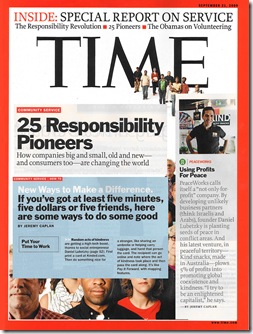I just finished watching Happy-Go-Lucky, directed by Mike Leigh. Initially I was jarred by the ebullience of the lead character, played with Golden-Globe-winning excellence by Sally Hawkins. But I stuck through it and discovered a well-executed character study of a woman with an eternally sunny personality (and her impact on others, including an irascible driving instructor solidly played by Eddie Marsan).
If you think about it, it is pretty rare that we delve into understanding "excessively" positive people, compared to studies of darkness. Yet the introspection pays off, and really delves nicely and naturally into her philosophy of life, human nature, and social conditioning.
Why do some of us live our lives wanting to be liked by everyone? Is it insecurity (from lack of affection, or from just biological need to be liked)? Is it a Karmik outlook of life (treat others with warmth and it will come back to you)? Is it our genes? Or our family history or ethnic culture (living in the shadow of the Holocaust)? Or our upbringing and parental models? Religious teaching? Is it guided by altruism, self-interest, or just being oneself?
And is it a "good" way to live our lives? Can we make this a better world by making others smile? (and doing unexpected acts of kindness for them – or KINDINGS – as KIND is encouraging with KINDED?). And what drives some people to care so much about others and about making this world better, while others are less so motivated?
Do we yield better people if guided by social awareness and concern or by internal values?
One of my best friends never cares what anyone else thinks about him – and it doesn’t make him any less ethical or upstanding, quite the opposite in his case. He has a solid core of values, does what he feels is right, and doesn’t wonder how society will receive it. He also doesn’t lose sleep. But maybe he is a rare case? Certainly there are many examples of people who also do not care about what others may think and who are not role models for society.
Others like me are always wondering how their behavior and actions will be judged by others, very self-aware, introspective, and insecure. In some ways this insecurity and self-consciousness can be a positive trait that makes us strive to be better and improve. But it can also increase occasions of grief and worry, and more dangerously for people in positions of power or responsibility (say a politician leading a nation), it can cause them to bend to political/social pressure and potentially reach a wrong but ephemerally popular decision. And just like in the other strand, there are also examples of self-aware people who may obsess about how others will see them but just put up fake mirrors and end up harming the world no less (think Bernard Madoff).
What is interesting about Poppy, the lead character in Happy-Go-Lucky, is that she is eternally positive and deeply committed to making those around her happier, WITHOUT judging herself or taking herself too seriously. She is forgiving – of others and of herself. That is quite interesting. And not as easy to emulate. She seems genuinely interested in healing the world – and in her own way, she quite succeeds at times.
Beyond values and outside impact, as far as our individual journeys in life, it certainly must be the case that having a positive outlook must yield greater happiness and joy in life than seeing life through gray.
In very deep ways, attitude is destiny.















 Fruit + Nut for years. They’re all-natural bars chock full of nutrients and flavor. You can actually see whole pieces of nuts and fruit all mashed together and sweetened with a touch of honey. It’s an all-star bar, and now the new variety, KIND PLUS, has even more added nutrients such as calcium and antioxidants. Both are great snacks for in-between meals.
Fruit + Nut for years. They’re all-natural bars chock full of nutrients and flavor. You can actually see whole pieces of nuts and fruit all mashed together and sweetened with a touch of honey. It’s an all-star bar, and now the new variety, KIND PLUS, has even more added nutrients such as calcium and antioxidants. Both are great snacks for in-between meals.